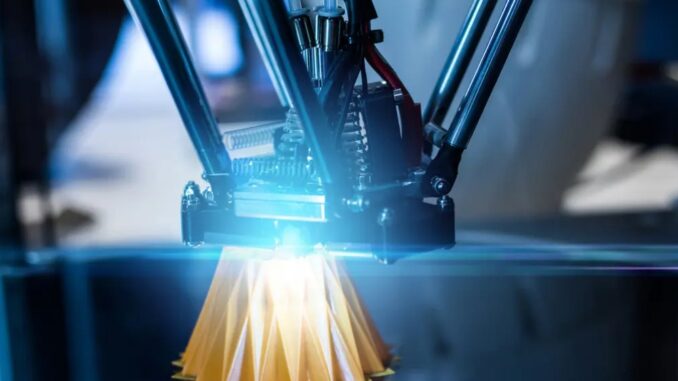
Enhanced supply chain control through additive manufacturing (AM) and localized manufacturing offers several key advantages
that contribute to more efficient, responsive, and resilient supply chains. Here are some detailed aspects of how AM enhances supply chain control:








1. Direct Oversight and Quality Assurance
Increased Quality Control: Localized AM allows manufacturers to closely monitor production processes and implement rigorous quality control measures. This direct oversight ensures that components meet the required standards and reduces the risk of defects.
Real-Time Adjustments: On-site production facilities enable immediate adjustments to production parameters based on quality control feedback, ensuring consistent product quality and reducing waste.
2. Inventory Management and Reduction
On-Demand Production: AM facilitates just-in-time manufacturing, where parts are produced as needed. This reduces the need for large inventories, lowering storage costs and minimizing the risk of excess or obsolete stock.
Reduced Lead Times: By producing parts locally and on-demand, manufacturers can significantly cut down lead times, ensuring that components are available when needed and reducing delays in the supply chain.
3. Customization and Flexibility
Personalized Production: AM allows for the customization of products to meet specific customer requirements or adapt to market demands quickly. This flexibility enhances customer satisfaction and opens up new market opportunities.
Adaptability to Design Changes: Localized AM facilities can swiftly implement design changes without the need for retooling or long lead times, making the supply chain more responsive to innovation and evolving market needs.
4. Resilience and Risk Mitigation
Decentralized Production: Establishing multiple localized AM hubs reduces dependency on a single manufacturing site, mitigating risks associated with localized disruptions (e.g., natural disasters, geopolitical tensions).
Emergency Production: In case of supply chain disruptions, localized AM facilities can quickly ramp up production to meet urgent demands, ensuring continuity of supply.
5. Cost Efficiency
Lower Transportation Costs: Local production minimizes transportation distances, reducing shipping costs and associated environmental impact.
Reduced Import/Export Fees: Manufacturing locally can eliminate import/export duties and tariffs, further reducing costs and simplifying logistics.
6. Enhanced Collaboration and Communication
Proximity to Design and R&D Teams: Localized manufacturing facilities often enable closer collaboration between production, design, and research and development teams. This proximity facilitates better communication, faster iteration, and more innovative solutions.
Improved Supplier Relationships: Closer geographic proximity to suppliers can enhance communication and coordination, leading to more efficient supply chain management and better integration of supplier capabilities.
7. Sustainability and Environmental Impact
Reduced Carbon Footprint: Localized production reduces the need for long-distance transportation, lowering the carbon footprint of the supply chain.
Material Efficiency: AM often uses materials more efficiently than traditional manufacturing methods, contributing to overall sustainability goals.
8. Data-Driven Insights and Optimization
Real-Time Data Monitoring: AM technologies often integrate with digital systems that provide real-time data on production processes, enabling manufacturers to monitor performance, identify bottlenecks, and optimize operations continuously.
Predictive Maintenance: The data collected can be used to predict maintenance needs and prevent unexpected downtime, ensuring smoother and more reliable production schedules.
Real-World Applications
Aerospace and Defense: Companies like GE Aviation use AM to produce complex engine parts locally, enhancing control over the supply chain and ensuring high standards of quality and precision.
Automotive Industry: Car manufacturers such as BMW and Ford employ AM for rapid prototyping and production of custom parts, allowing for quicker response to design changes and market demands.
Medical Devices: Companies like Stryker use AM to produce customized implants and surgical instruments, ensuring high-quality standards and reducing lead times for critical healthcare products.
By leveraging the advantages of AM and localized manufacturing, companies can gain greater control over their supply chains, leading to improved efficiency, responsiveness, and resilience. This enhanced control ultimately translates into better product quality, lower costs, and increased customer satisfaction.

Leave a Reply